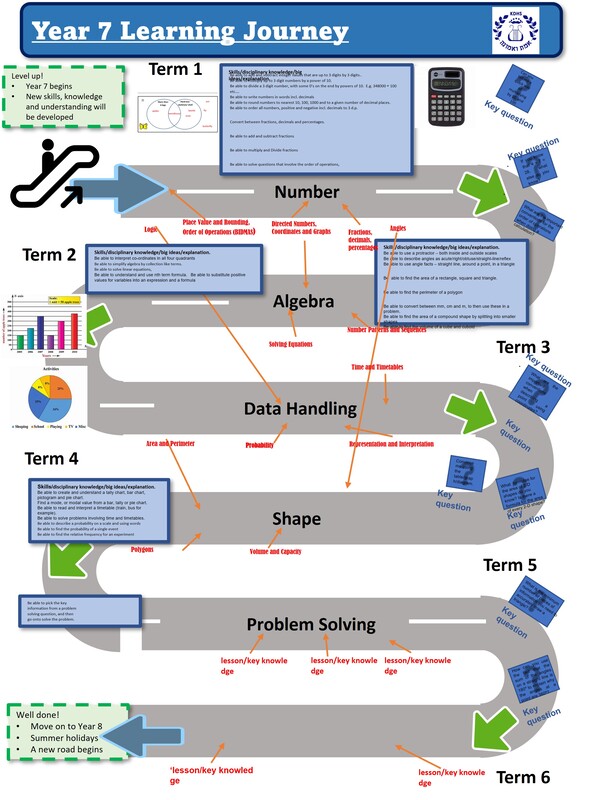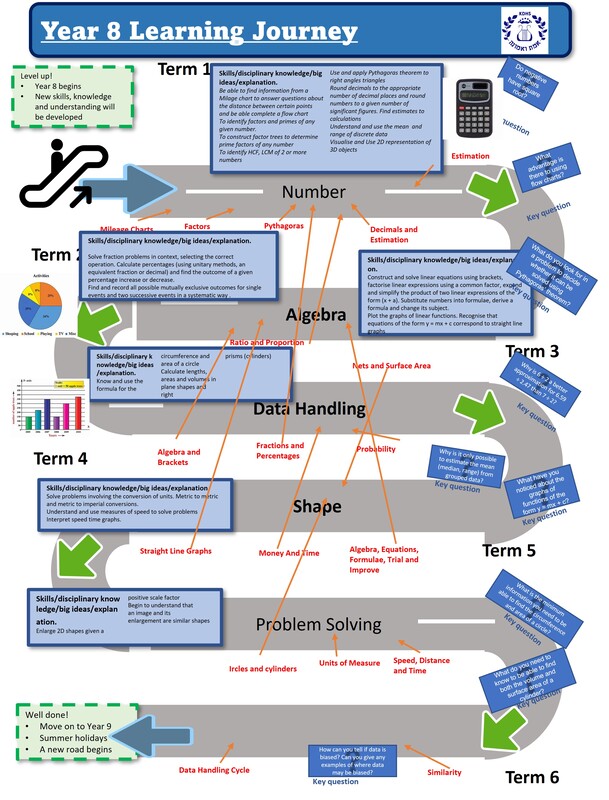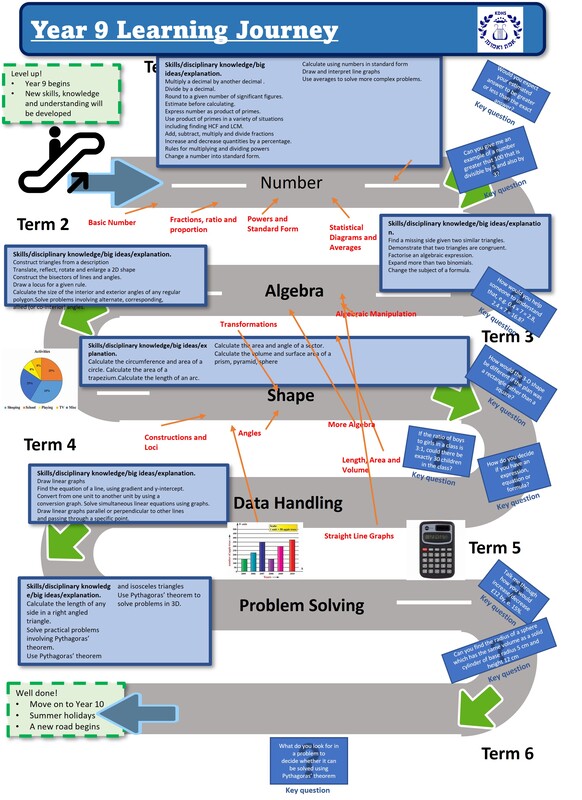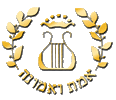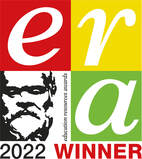MATHEMATICS
|
Mr. M. Milejski - Head of Mathematics
Mrs. O. Selby - Key Stage 4 Co-Ordinator Mr. Z. Christodoulides - Key Stage 5 Co-Ordinator Mrs. T. Basger Mrs. U. Braun Mr. D. Curson Mr. C. Houghton Mrs. S. Jones Mr. S. Vincent Aims:
CurriculumKEY STAGE 3
Teaching is primarily based on the National Curriculum programmes of study and GCSE Mathematics Specification 8300 (AQA). The curriculum content includes Number, Algebra, Geometry and Measure, Probability and Statistics. The National Curriculum now places greater emphasis on Ratio, Proportion and Rates of Change. Pupils study material from each of these areas throughout the Key Stages at a level appropriate to their ability. They are expected to apply their knowledge in a variety of contexts. Our focus in KS3 is about setting firm foundations for GCSE and beyond. Thus, by the end of Year 11, the majority of pupils are ready for Higher tier GCSE entry. KEY STAGE 4 (GCSE)
GCSE Mathematics Specification 8300 (AQA) The GCSE course is begun formally in Year 9 and follows on seamlessly from work covered in the lower years. There is an increasing emphasis on problem solving as only 40-50% of GCSE exam marks are for use of standard techniques. The remaining marks are for reasoning, interpreting, communication and problem solving. Students will be given very few formulae in the exam so we expect them to learn the formulae as they come across them in lessons. Students will be given plenty of practice through classwork, homework, problem solving assignments, tests and examinations. The use of ICT will be encouraged to enhance the learning process and to develop wider skills. We extend our top sets beyond National Curriculum expectations, both in depth and breadth of study. In some cases, exceptionally able pupils may follow a programme of study leading to qualifications such as the level 2 AQA Certificate in Further Mathematics or take part in the online Olympiad mentoring scheme (run by the UK Mathematics Trust). Pupils take part in a variety of national competitions including the various UKMT Maths challenges and Olympiads. KEY STAGE 5 (AS and A Level) Mathematics OCR Spec B (MEI) H640 The course consists of Pure Mathematics, Mechanics and Statistics: Pure Mathematics (2/3 of the course) includes Algebra, Calculus, Geometry and Trigonometry. It contains a body of knowledge that can be studied and enjoyed for its own sake. Mechanics (1/6 of the course) is the study of forces and how physical objects either move or stay still under the action of these forces. It is about developing the critical facilities required to approach problem solving, using the effect of forces as the main context. Statistics (1/6 of the course) involves the study of the principles and methods of statistical analysis. It provides a good basis for all subjects requiring data collection and analysis. The course is designed to teach students to apply the Mathematics taught in a real-world context and includes the analysis of a large data set. The examination includes a comprehension paper on a mathematical topic. Students are expected to have a calculator which will compute summary statistics and access probabilities from the binomial and normal distribution. We will advise students on the best choice of calculator to buy at the start of the course. AS and A Level Further Mathematics OCR Spec B (MEI) H645 Mathematics is so important that it is the only traditional subject with a second A level. An A level qualification in Further Mathematics is highly regarded as a measure of intellectual ability when applying for any undergraduate course. It provides an excellent preparation for subjects with a strong mathematical content, such as Mathematics, Economics, Physics, Engineering and Computing. The course consists of the following units: Core Pure Mathematics – ½ of the marks Mechanics Major Y421 – 1/3 of the marks Statistics Minor Y432 – 1/6 of the marks. A level students have access to detailed notes, online learning activities and assessments through the Integral Maths learning platform as well as e-books of course texts. They have access to the advanced graphing package, Autograph, as well as Excel and the other freely available software such as Desmos or Geogebra. They need to be confident with the use of software to make the most of the course. For example, the large data set requires a computer to analyse fully. A level students take part in the UKMT Senior Maths Challenge, the Senior Team Challenge and other competitions. They are encouraged to read around the subject and attend lectures and other enrichment activities in school and at various universities. Each year, students take MAT/ STEP. Higher Education and Career OpportunitiesIt is possible to study for a degree in Mathematics at most universities. Mathematics itself has many different branches and most degree courses allow some choice in the later stages. It is also possible for Mathematics to be offered as part of a joint degree as Mathematics combines well with almost any other subject.
It is a good basis for many careers as it shows evidence of a sound logical mind and of a person who is able to think analytically and lucidly. These are qualities which are essential in a variety of careers such as Engineering, Architecture, Economics, Business Studies, Computing, Accountancy, Psychology, Management, Education, Law, Medicine and Scientific Research. Employers find A Level Mathematics an attractive qualification even if it is unlikely that the work will involve Mathematics to any great extent. On the other hand there are many areas of industrial or commercial employment where a mathematical background is very useful and does actually enter into the job being done. |
EquipmentStudents are expected to have a ruler, compasses, set square, protractor and a scientific calculator.
StaffStaff
Mr. M. Milejski - Head of Mathematics Mrs. S. Spindler - Key Stage 3 Co-Ordinator Mrs. O. Selby - Key Stage 4 Co-Ordinator Mr. Z. Christodoulides - Key Stage 5 Co-Ordinator Mrs. T. Basger Mrs. S. Bickley Mr. D .Curzon Mrs. J.Goldberg Mrs. S. Haley Mrs. S.Jones Mr. B. Levy Mr. S. Vincent |

